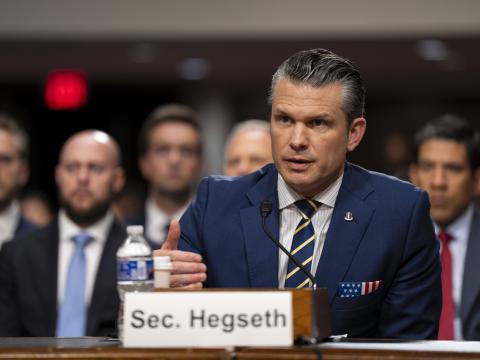Diminishing Dollars Mean Different Procurement Practices
Members of the two morning panels at the DHS 2012 Information Technology Industry Day hammered home the need all DHS agencies have for information sharing and information security within a mobile environment; however, the agencies continue to face slow processes to put these capabilities into place.
Members of the two morning panels at the DHS 2012 Information Technology Industry Day hammered home the need all DHS agencies have for information sharing and information security within a mobile environment. In addition to constrained budgets-a topic that all the panelists said was unnecessary to mention yet spoke about extensively-the agencies continue to face slow processes to put these capabilities into place. Among the hurdles that continue to surface are slow certification and accreditation processes, barriers to entrance for industry and exit from contracts for government, and management of authoritative data sources. Every chief information officer (CIO) must treat each dollar as if it's the last one they have to spend on IT, panelists agreed. This means that they are no longer interested in gadgets but rather capabilities that feature economical operating and management in the future. In addition, companies that come to the table with metrics about return on investment are those that DHS' CIOs are most likely to pay close attention to and seek the dollars to "prime the pump" for a purchase despite diminishing budgets. CIOs from the DHS emphasized that their information sharing about companies' solutions has improved immensely during the past several years. As a result, they are able to build on each others' purchases, saving time and dollars that can be invested in areas that have had to do without in the past. Rear Adm. Robert Day, USCG, CIO, U.S. Coast Guard, perhaps summed up the budget issues best: "In fiscal year 2012, the 'nice-to-haves' have gone away; in fiscal year 2013, the 'should haves' are going away; in fiscal year 2014, the 'must haves' will go away. This progression is one that worries all the CIOs as they wonder if they'll have the revenue they need to address future threats," he added.




Comments